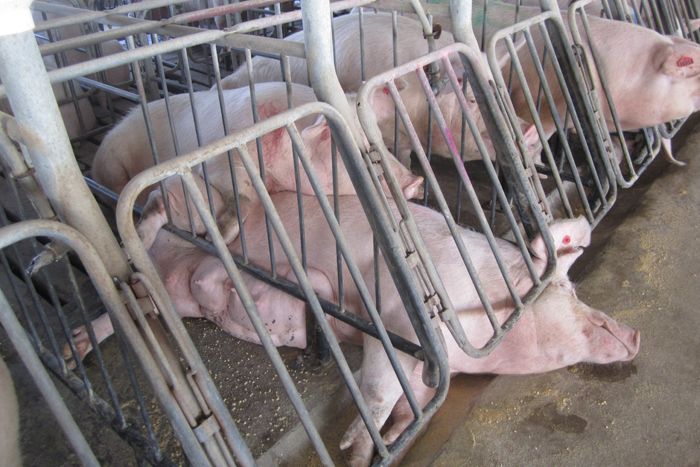
Josh Balk is food policy director at The Humane Society of the United States (HSUS). He contributed this article to Live Science's Expert Voices: Op-Ed & Insights.
Consumers today are increasingly demanding food that does not originate from animals that have experienced cruelty. An American Farm Bureau poll found 95 percent of consumers say they want farm animals to be treated well, but the reality is most animals raised for food today grow up inside crowded factories, not farms, and most are victims of inhumane agricultural practices.
But dietary concepts that adhere to higher animal welfare standards, like the Three Rs ("reducing" or "replacing" consumption of animal products, while "refining" our diets by switching to products from humane sources) are here to stay. And in response to those concerns, dozens of top food companies are putting policies in place that address animal cruelty — several emerging this summer.
In August, Nestlé announced an industry-leading animal welfare program that will eliminate several controversial, yet currently standard, practices within its global supply system. The eliminated practices will include:
- drugging and breeding chickens to grow so heavy, so fast, that they suffer crippling injuries;
- performing operations on animals by cutting their tails, horns and testicles off without pain relief; and
- locking egg-laying hens, veal calves and mother pigs in tiny cages for their entire lives.
Just a few weeks after Nestlé's groundbreaking announcement, Heinz announced that it is committed to switching 20 percent of the eggs it uses to cage-free. The announcement aligns with that company's promise to work with suppliers globally to reduce the use of battery cages — tiny cages used to confine egg-laying chickens.

And earlier this month, Unilever announced it's going to work with the global egg industry to eliminate the killing of male chicks at hatcheries. Since only female birds lay eggs, the industry has no use for male chicks. Their solution? Shortly after the chicks are born, hatcheries throw them into grinders alive or suffocate them in plastic bags. But now, with new technology, the sex of the embryo can be determined within the egg and eggs that would've hatched male chicks can be destroyed before the embryos develop.
The announcements from Nestlé, Unilever and Heinz — among others including Burger King, Safeway and Costco — signify that the days are coming to an end when the largest companies within the egg, meat and dairy industries could shrug off the suffering and pain inflicted by their production methods. [This Holiday Season, Consumers Demand Humanely Raised Food (Op-Ed)]
Sign up for the Live Science daily newsletter now
Get the world’s most fascinating discoveries delivered straight to your inbox.
The message from food manufacturers to the factory farming industries is loud and clear: Customers find abuses to animals to be unacceptable, and such practices will no longer be tolerated.
Balk's most recent Op-Ed was "Why Does Less Meat Mean Less Heat?" Follow all of the Expert Voices issues and debates — and become part of the discussion — on Facebook, Twitter and Google+. The views expressed are those of the author and do not necessarily reflect the views of the publisher. This version of the article was originally published on Live Science.













